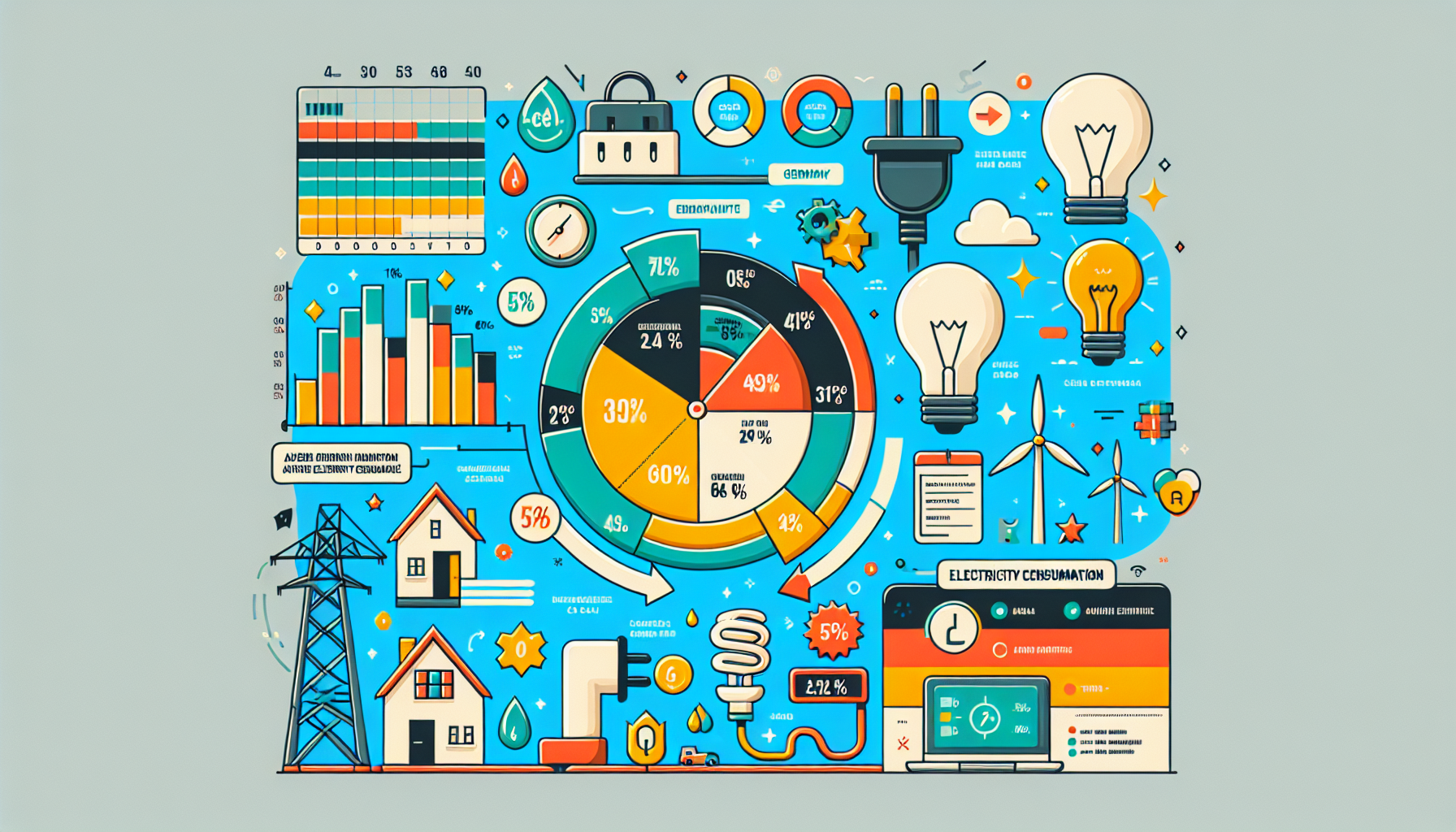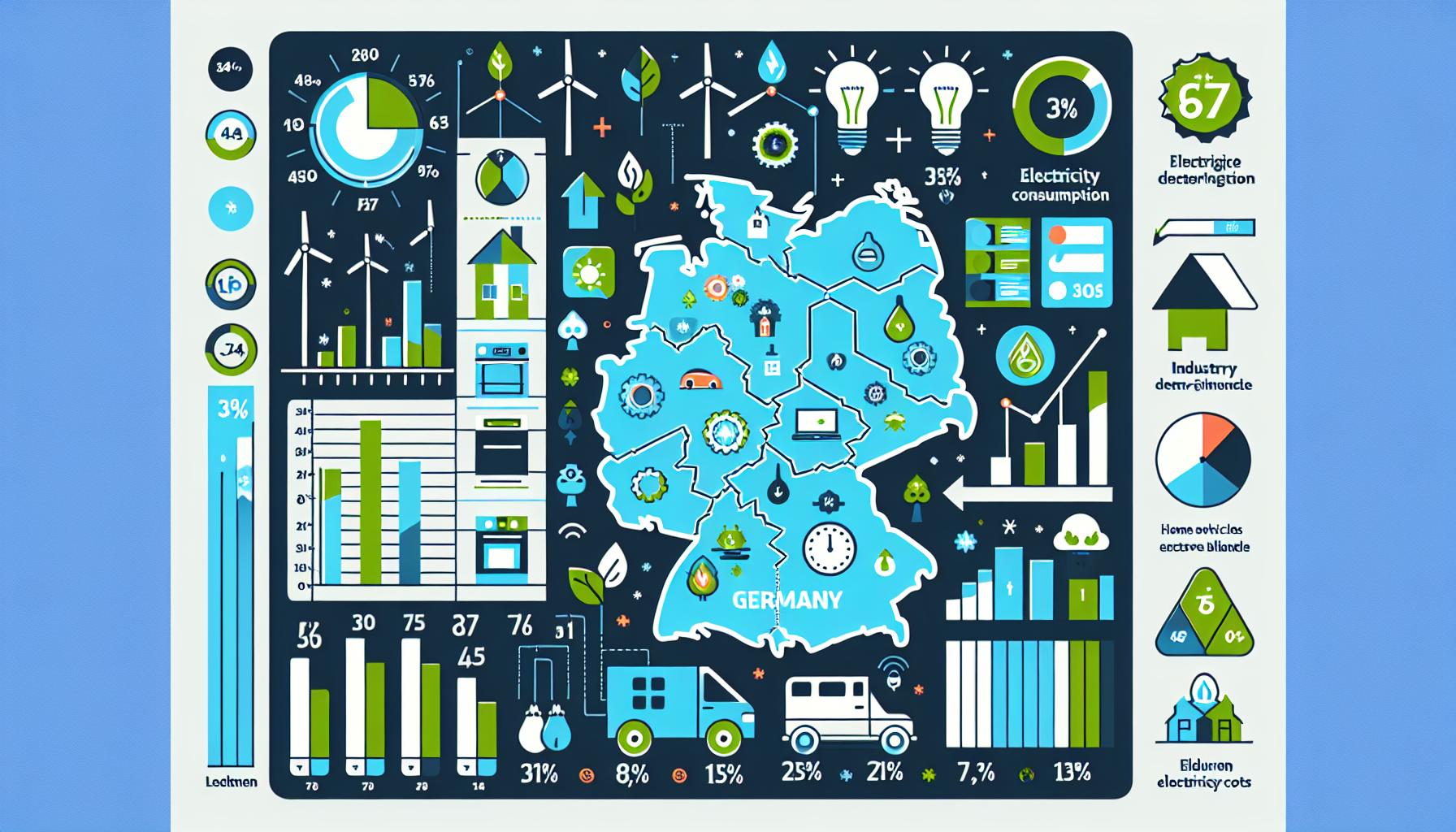Average Electricity Consumption in Germany: Key Insights and Trends
Electricity consumption is a critical topic for households, businesses, and policymakers alike. In Germany, where energy efficiency and sustainability are top priorities, understanding average electricity usage can help consumers optimize costs and reduce environmental impact. This article explores Germany’s average electricity consumption, factors influencing usage, and practical ways to save energy.

How Much Electricity Do Germans Use on Average?
According to recent data, the average German household consumes approximately 2,500 to 3,500 kilowatt-hours (kWh) of electricity per year. However, this figure varies significantly depending on household size, location, and lifestyle. For example:
- Single-person households: 1,500–2,000 kWh/year
- Couples without children: 2,500–3,000 kWh/year
- Families with children: 3,500–5,000 kWh/year
These numbers highlight the impact of household composition on energy needs. Larger families tend to consume more due to increased appliance usage, lighting, and electronic devices.
What Influences Electricity Consumption?
Several factors contribute to variations in electricity usage among German households:
1. Household Size and Occupancy
More occupants typically mean higher energy consumption, as multiple people use appliances, charge devices, and require lighting simultaneously.

2. Type of Heating System
Homes with electric heating systems consume significantly more electricity than those using gas or district heating. Electric water heaters also contribute to higher usage.
3. Energy Efficiency of Appliances
Older, inefficient refrigerators, washing machines, and dishwashers consume more power. Upgrading to energy-efficient models (A+++ rated) can reduce consumption by up to 30%.
4. Behavioral Habits
Leaving lights on, running half-full washing machines, or keeping devices on standby mode all add unnecessary costs. Simple behavioral changes can lead to substantial savings.
Is Your Electricity Consumption Too High?
To determine if your household’s electricity usage is excessive, compare it to the national averages. If your consumption is significantly higher, consider:
- Conducting an energy audit to identify inefficiencies.
- Switching to LED lighting, which uses 75% less energy than incandescent bulbs.
- Using smart thermostats and power strips to minimize standby consumption.
How to Reduce Electricity Consumption and Save Money
Lowering your electricity bill doesn’t require drastic lifestyle changes. Here are some effective strategies:
1. Optimize Heating and Cooling
Set your thermostat to an efficient temperature (20°C in winter, slightly lower at night) and avoid overheating rooms.
2. Use Energy-Efficient Appliances
When replacing old appliances, prioritize those with high energy ratings. Look for the EU Energy Label when shopping.
3. Unplug Unused Electronics
Many devices draw power even when turned off. Unplug chargers, TVs, and computers when not in use.
4. Switch to Renewable Energy Providers
Many German energy providers offer green electricity plans, which can be both cost-effective and environmentally friendly.
Conclusion: What This Means for the Energy Market
As electricity prices continue to fluctuate, understanding and optimizing household consumption will become increasingly important. In the coming weeks, we may see:
- Higher demand for energy-efficient appliances as consumers seek long-term savings.
- Increased adoption of smart home technologies to monitor and reduce usage.
- Policy shifts toward renewable energy incentives as Germany pushes for carbon neutrality.
By staying informed and proactive, households can reduce costs while contributing to a more sustainable energy future.

